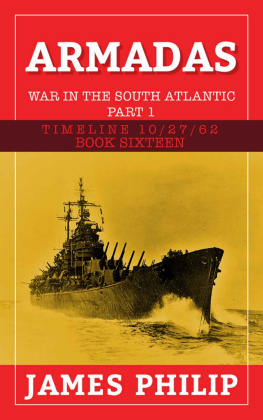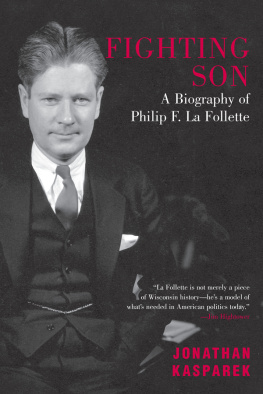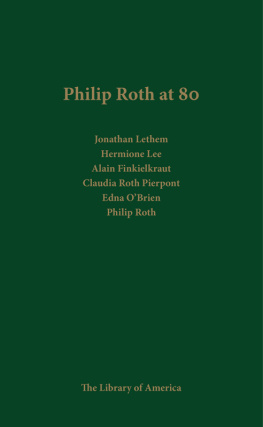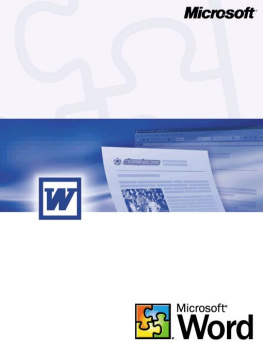Philip - Armadas
Here you can read online Philip - Armadas full text of the book (entire story) in english for free. Download pdf and epub, get meaning, cover and reviews about this ebook. year: 2021, genre: Detective and thriller. Description of the work, (preface) as well as reviews are available. Best literature library LitArk.com created for fans of good reading and offers a wide selection of genres:
Romance novel
Science fiction
Adventure
Detective
Science
History
Home and family
Prose
Art
Politics
Computer
Non-fiction
Religion
Business
Children
Humor
Choose a favorite category and find really read worthwhile books. Enjoy immersion in the world of imagination, feel the emotions of the characters or learn something new for yourself, make an fascinating discovery.
- Book:Armadas
- Author:
- Genre:
- Year:2021
- Rating:4 / 5
- Favourites:Add to favourites
- Your mark:
- 80
- 1
- 2
- 3
- 4
- 5
Armadas: summary, description and annotation
We offer to read an annotation, description, summary or preface (depends on what the author of the book "Armadas" wrote himself). If you haven't found the necessary information about the book — write in the comments, we will try to find it.
Armadas — read online for free the complete book (whole text) full work
Below is the text of the book, divided by pages. System saving the place of the last page read, allows you to conveniently read the book "Armadas" online for free, without having to search again every time where you left off. Put a bookmark, and you can go to the page where you finished reading at any time.
Font size:
Interval:
Bookmark:
James Philip
________
ARMADAS
________
War in the South Atlantic - Part 1
____
Timeline 10/27/62 BOOK SIXTEEN
Copyright James P. Coldham writing as James Philip 2021. All rights reserved.
Cover concept by James Philip
Graphic Design by Beastleigh Web Design
The Timeline 10/27/62 Series
________
Main Series
Book 1: Operation Anadyr
Book 2: Love is Strange
Book 3: The Pillars of Hercules
Book 4: Red Dawn
Book 5: The Burning Time
Book 6: Tales of Brave Ulysses
Book 7: A Line in the Sand
Book 8: The Mountains of the Moon
Book 9: All Along the Watchtower
Book 10: Crow on the Cradle
Book 11: 1966 & All That
Book 12: Only in America
Book 13: Warsaw Concerto
Book 14: Eight Miles High
Book 15: Wont Get Fooled Again
The War in the South Atlantic
Stumbling Towards the Edge
Book 16: Armadas
Book 17: Smoke on the Water
Book 18: Cassandras Song
USA Series
Book 1: Aftermath
Book 2: California Dreaming
Book 3: The Great Society
Book 4: Ask Not of Your Country
Book 5: The American Dream
Australia Series
Book 1: Cricket on the Beach
Book 2: Operation Manna
A Standalone Timeline 10/27/62 Novel
Football in the Ruins The World Cup of 1966
Timeline 10/27/62 Stories
The Malvinas Trilogy
A Kelpers Tale
La Argentina
Puerto Argentino
Other Stories
Cuba Libre
The House on Haight Street
The Lost Fleet
________
For the latest news and author blogs about the
Timeline 10/27/62 Series check out
www.thetimelinesaga.com
Contents
ARMADAS
War in the South Atlantic - Part 1
[Timeline 10/27/62 Series Book Sixteen]
Sir,
Please be advised of the following.
1/This is to inform you that at 12:01 hours GMT this day, 1st September, 1969, a two hundred miles Total Air and Maritime Exclusion Zone (TAMEZ) will come into effect in respect of the following map references: 514140S, 575110W (East Falkland); 541653S, 363029W (South Georgia); and 67358S, 68759W, (British Antarctic Territories).
2/You are hereby notified that Her Majestys Government reserves to itself the absolute right to authorise the use of force to arrest or to destroy any Argentine flagged aircraft or vessel discovered within the aforementioned two-hundred-mile radius TAMEZs without warning.
3/All Argentine Army, Navy and Air Force assets inside the aforementioned TAMEZs should be evacuated immediately. Any such assets remaining within any of the TAMEZs will be treated as hostile from 00:01 hours GMT on 10th September, 1969.
4/Any ships or aircraft suspected to be carrying weapons, war supplies or military personnel from the mainland to the Falklands will be liable to attack without warning.
I have the honour to be Her Majestys Secretary of State for Foreign and Commonwealth Affairs.
This was the verbatim text of the note handed to the Cha rg d ' affaires at the Embassy of the Argentine Republic in Washington D.C. shortly before seven oclock (local time) on the evening of Sunday 31st August, 1969. It was signed for and on behalf of Her Majestys Government by Lord Thomas Carlyle Harding-Grayson, the United Kingdoms Secretary of State for Foreign and Commonwealth Affairs.
The phoney war period between the British announcement of the imposition of three Total Air and Maritime Exclusion Zones (TAMEZs) in the South Atlantic and the commencement of hostilities seemed, at the time, to drag on interminably. Moreover, its longevity some thirty-seven days eventually began to suggest to the rest of the world that the resolve of the British might, in some way be in question.
This, of course, ignores the practical problems of waging war many thousands of miles from ones nearest bases; and the restraining effect of the quietly persistent behind the scenes pressure from the Brenckmann Administration in Washington, demanding that peace should be given not one but several, last chances. That said, for the Argentine Junta, we now know that Henry Kissingers shuttle diplomacy to Buenos Aires, was for the men in the Casa Rosada, very much the equivalent of drinking in the last chance saloon.
Although sadly, this was a thing neither he, or anybody else, was able to communicate to General Juan Carlos Ongana Carballo and his co-dictators before it was far, far too late.
Rightly, I think, there is a consensus amongst scholars of these things that the Argentine had plenty of opportunities to step back from the brink, and wilfully ignored them all. Extraordinarily, when Henry Kissinger informed them that in the event of war, they could expect no further aid, military or fiscal from the United States, they dismissed the threat and its consequences as yet another bluff .
Undoubtedly, the Secretary of States two el ongated unsuccessful attempts to talk sense into the Junta deploying friendship, reason and in the end cajoling and threats were genuine attempts, and for the Argentine, tragically missed opportunities to avoid hostilities. Kissinger had eventually conceded defeat. After which, with no little exasperation and a very heavy heart, President Brenckmann had ordered the US Department of Defense to offer all assistance to the United Kingdoms military operations in the South Atlantic short of US personnel actually participating in war-fighting missions, while tying British hands until midnight, DC time on the night of 6-7th October 1969.
All such support should be rendered on the basis of United Kingdom forces operating out of area under the auspices of the North Atlantic Treaty Alliance
In other words, henceforth the United States would provide logistical support to its ally as if it was fighting in Europe against Soviet aggression. The message ought to have been loud and clear to the Junta had its members not been selectively deaf, dumb and blind by then that whatever happened, the Brits were not on their own, regardless of the collateral damage to US foreign policy objectives and influence in Latin America.
That was not to say that US support for the British cause was, in any sense, unconditional. In fact, it was the reverse; it was simply that the Thatcher Administration in Oxford was, in many ways, as wilfully obtuse in certain respects as its Argentine counterparts in Buenos Aires. There were limits to what the White House, and Main Street America was prepared to stomach and although, later there was a great deal of controversy about the question of whether the United Kingdom was entitled to employ what amounted to unrestricted submarine warfare in the South Atlantic, this had never, at any time been the view from Pennsylvania Avenue. However, this was not a debate conducted in public; meaning that it was not understood, even in Washington, that the Brenckmann Administrations NATO-like support for the British war effort was strictly conditional, not the free hand that Margaret Thatcher believed it to be and was subsequently to discover, it was not, having never really understood that US policy in Latin America was not just about the fate of the Falkland Islands, let alone the health of the fable transatlantic special relationship!
However, none of this was immediately apparent on the day the Argentine Junta was informed that the US Governments patience was exhausted.
The White House, faced by the Organisation of American States OAS - intransigence over its preferred solution to the Cuba Problem, and realising that the Generals in the Argentine and their South American allies were presently beyond reason, had pragmatically determined to press the reset button vis--vis US-Latin American relations. Modern historians suggest that the OASs unreasoning, self-defeating obstruction over Cuba was the last straw. Perhaps, but US exasperation with even its few remaining friends in South America had been rampant since long before the October War and, in many respects, the only surprising thing was that it took so long for the White Houses patience to snap.
Font size:
Interval:
Bookmark:
Similar books «Armadas»
Look at similar books to Armadas. We have selected literature similar in name and meaning in the hope of providing readers with more options to find new, interesting, not yet read works.
Discussion, reviews of the book Armadas and just readers' own opinions. Leave your comments, write what you think about the work, its meaning or the main characters. Specify what exactly you liked and what you didn't like, and why you think so.











